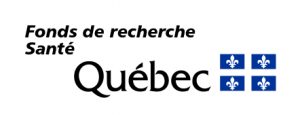The Fonds de recherche du Québec (FRQ) and the Unité de soutien SRAP du Québec invite students and researchers applying for a FRQ scholarship to participate in the Unité de soutien SRAP du Québec fellowship program.
To benefit from the Unité de soutien SRAP du Québec fellowship program, applicants must apply to the Fonds de recherche du Québec – Santé (FRQS) or the Fonds de recherche du Québec – Société et culture (FRQSC) scholarship competition. Applicants must check the Unité de soutien SRAP du Québec program in the Partenariats section on their FRQnet application form. At the end of the competition, the Unité de soutien SRAP du Québec will contact recipients to set up the support terms, if applicable.
What is the Unité de soutien SRAP du Québec fellowship program?
This program aims to hone skills, develop unique expertise and expand the POR collaboration network for fellows, in line with the Unit’s priority themes of frontline care, community care and integration of care pathways and services.
It gives fellows the opportunity to participate in training activities and science days and receive scientific communications grants. It also offers fellows the opportunity to collaborate on projects developed by the Unit’s experts to integrate fellows into the network of POR experts in areas such as methodological development and patient and public involvement in the research process. Fellows can also connect with a community of practice and receive various forms of support and mentorship through a personal career development plan, as well as special access to internships and POR mentoring by experts.
Dr. Alain Vanasse, scientific director of the Unité de soutien SRAP du Québec, invites applicants to apply: “There is a growing interest in POR and the scope of our program. We look forward to integrating more fellows this year.”
Patient-oriented research: valuable expertise
Including patients in research projects is an approach that ultimately leads to improved care and services to the public. This collaborative method, called co-construction, is based on a common understanding between patient partners, family members, researchers and health professionals.
“We are confident that patient-centred research improves the quality of our research projects and helps position Quebec internationally,” says Rémi Quirion, Quebec head scientist.
Today, the global scientific community and government agencies recognize the value of patient involvement in research. National SPOR entities have been created in several countries, including the United Kingdom, the United States, Australia and Canada.
About the Unité de soutien SRAP du Québec
The Unité de soutien de la Stratégie de recherche axée sur la patiente et le patient (SRAP) du Québec facilitates, strengthens and develops patient-oriented research (POR). It is part of the national strategy for patient-oriented research implemented by the Canadian Institutes of Health Research (CIHR). It supports the integration of findings from research with and for patients into clinical and organizational practices to improve the experience and health of the population by providing mentorship, consulting, training, fellowships, scientific events, support and tools development. For more information, visit unitesoutiensrapqc.ca.
About the Fonds de recherche du Québec
Reporting to the Minister of Economy and Innovation, the mission of the Fonds de recherche du Québec is to ensure the strategic and coherent development of Quebec research and support it financially, support the training of researchers, establish the necessary partnerships for these researchers to carry out their mission, and promote and support the mobilization of knowledge. To learn more, visit the FRQSC, FRQS, FRQNT websites.
